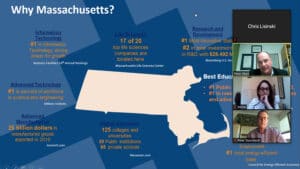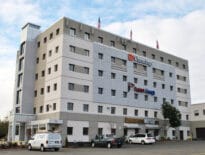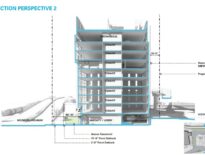
Western Massachusetts business leaders touted the region's quality of life and lower density as features that could become even more appealing in the wake of the COVID-19 pandemic during a recent virtual event.
As Massachusetts works to claw its way back from the economic upheaval of the COVID-19 pandemic, business leaders in the western part of the state see an opportunity to generate new interest in the region’s offerings.
Several speakers at a virtual panel event last week said many of the most appealing parts of western Massachusetts – including its more rural communities, comparatively low cost of living, and outdoors-oriented lifestyle – could become even greater strengths in the wake of the viral outbreak.
“One of the biggest calling cards we have is actually that quality of life, a quality of life that, to be honest, is becoming more prevalent and more sought-after in these times of COVID,” Rick Sullivan, president and CEO of the Western Massachusetts Economic Development Council, said. “We are obviously less dense. We have a real focus as a region on outdoor recreational opportunities and love of nature and the environment.”
The push comes as home sales show many wealthy New Yorkers and Bostonians are moving, at least temporarily, to Cape Cod and the Berkshires in an effort to escape the pandemic, and have caused others who had planned to retire there to accelerate their moves. Some local officials there hope they may be able to entice some transplants to stay.
Like the state and country at large, public life in western Massachusetts has been upended during the pandemic.
Some of the region’s strongest industries, such as hospitality and tourism, are among those that have been disproportionately affected by mandatory physical closures and months of significantly decreased demand.
Peter Abair, executive director of MassEcon, said he is optimistic, though, that interest in local attractions will return and that the area will rebound.
“Mount Greylock will be here in a year’s time, post-pandemic,” he said. “The Connecticut River will be here. Really significant destinations like Tanglewood, like the Basketball Hall of Fame – they’re not going anywhere, so in the post-pandemic world, these assets will still be in place. Not all of them, we know there’s going to be some loss, and it’s regrettable, but a lot of these assets will still be in place.”
“The strengths we see now on a regional basis, for the most part, should exist in the post-pandemic world,” Abair continued.
Local leaders have long pointed to affordability and quality-of-life as benefits of living or doing business in the region, particularly given the pricey real estate market in the Boston area and slow housing production.
New work habits could add to their case. Several panelists noted Thursday that many employees have shifted to working from home during the COVID-19 pandemic, and if businesses view that as a viable model even once the health crisis subsides, residents could move west, pay less for a larger home, and avoid lengthy commutes.
“When we think a little bit about what the future looks like, there are these elements that are still quite murky. We anecdotally talk a lot about COVID and what it’s going to mean for density and how people think about place, both in terms of where they live and where they work,” said Mark Melnik, director of economic and public policy research at the UMass Donahue Institute. “These are opportunities where a place like western Mass. can be primed to grow and thrive in an environment where we’ve broken down our walls a little bit more about what is ‘place.'”
Panelists argued that many people who do not live in Western Massachusetts often have misconceptions about the region.
Sullivan said he is often asked if the area has enough of a workforce to support the local economy, and he pointed to the west’s many colleges and universities as an apparent “pipeline” of talent ready to funnel into businesses.
Interprint USA Director of Communications Peter Stasiowski said Berkshire County in particular has helped change the perception that “Western Massachusetts is just the space between Boston and Albany” by touting its cultural and tourism offerings.
“You start to understand that what you’ve been hearing and what your parents or others over the years have told you about this region and what’s really happening here are, in some ways, two different things,” Stasiowski said.






